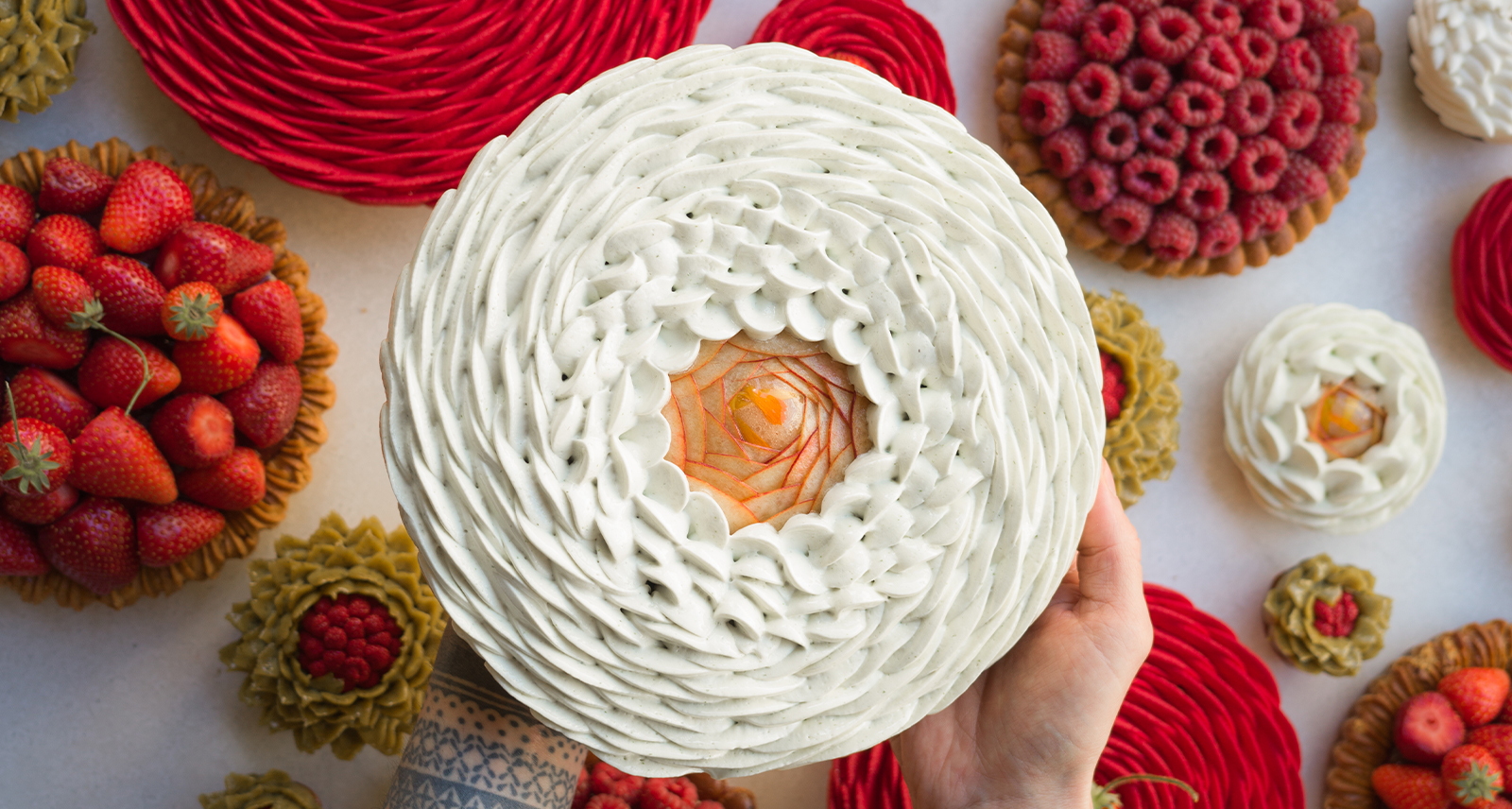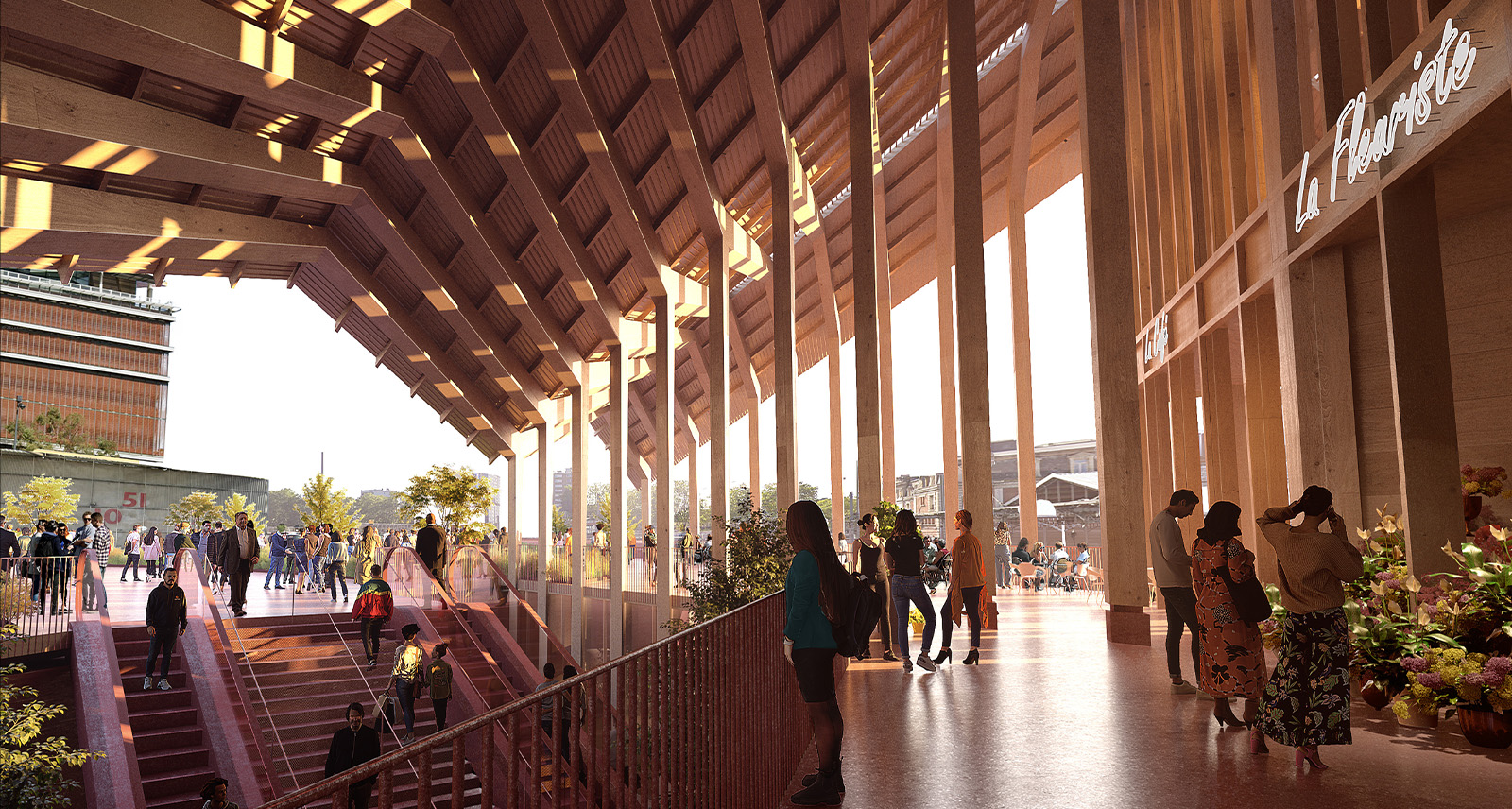Cédric Grolet Says French Pastry Will Outlast Us All
Cédric Grolet values clear communication. His expression of his craft is undiluted, whether that be in his selection of ingredients, the quality of which ensures his pastries burst with simple yet formidable flavours, or his showcasing of the handmade, intricate creations — posted to Instagram — that tempt the tastebuds of his over 8 million followers. The French chef appreciates the narrative arc of taste.
“When we eat a pastry without knowing what’s in it, it starts badly,” says Grolet. “A simple seasonal pastry is often much more effective — that’s an excellent pastry. Often, when we go too far, we no longer understand. We are getting away from the basics.”
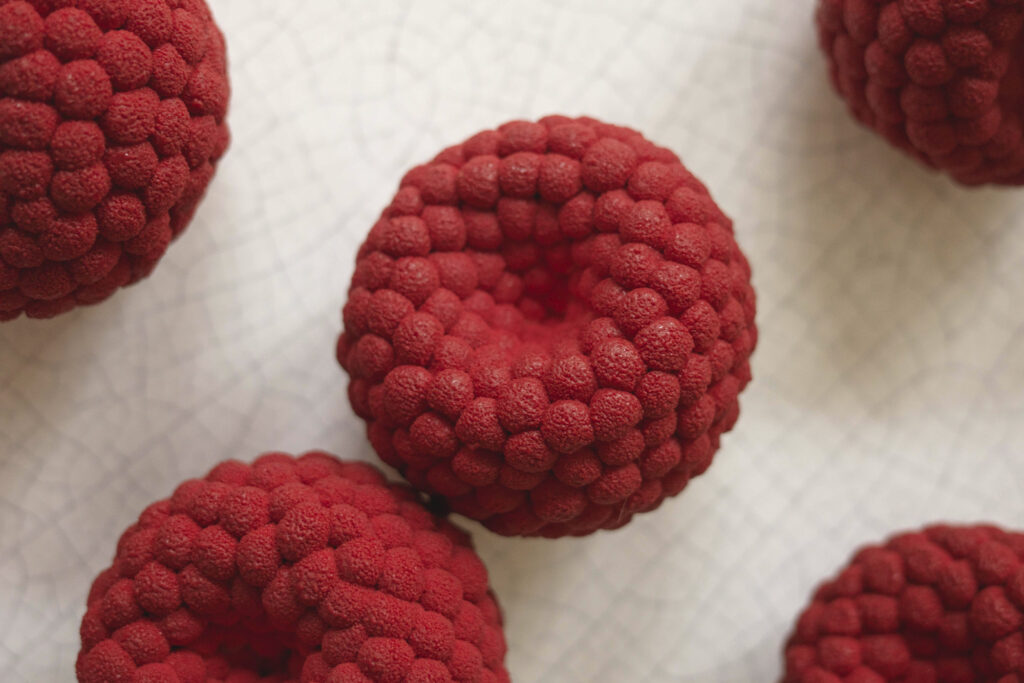
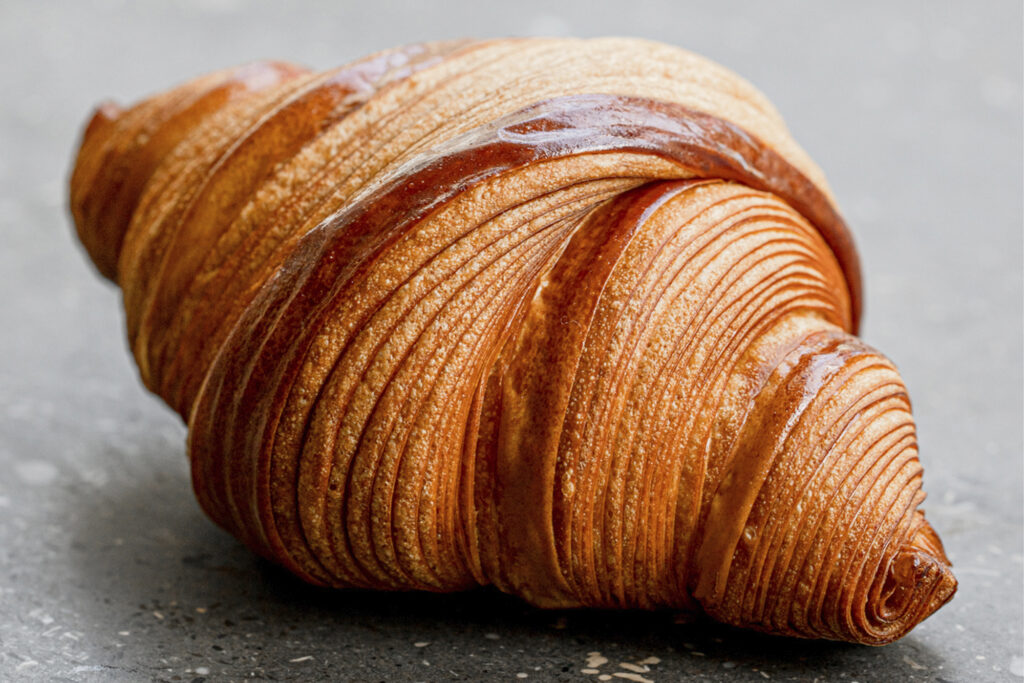
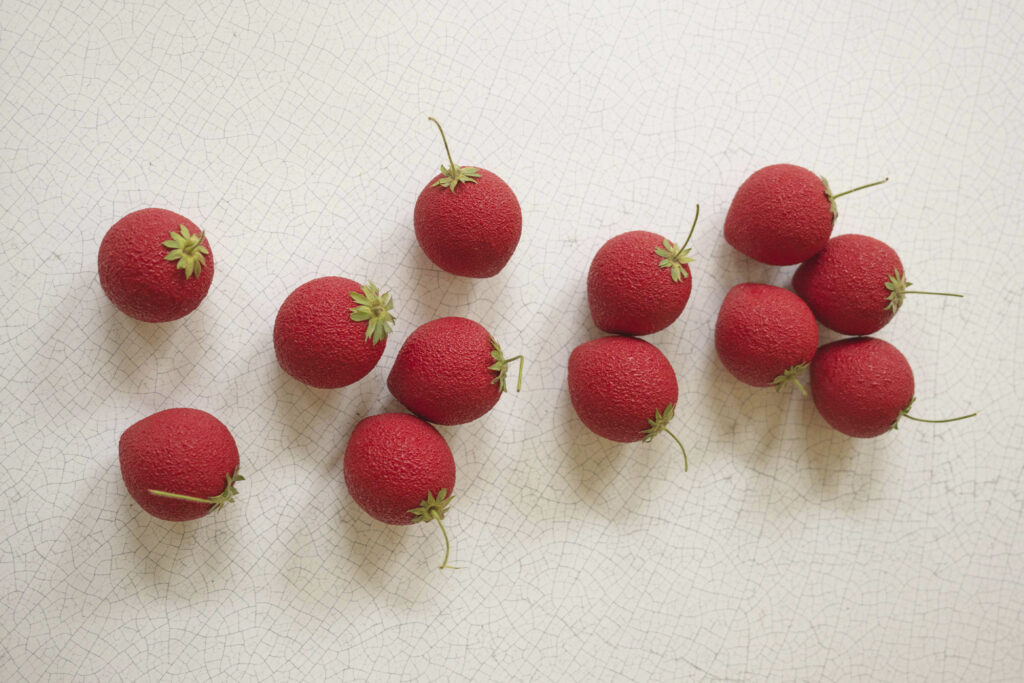
And yet, to an outsider, Grolet’s creations look anything but basic. The tarts, cakes, and croissants he’s cooked up during the last decade have been credited with breathing new life into the revered art of French pâtisserie. While his fridge at home may be full of fresh fruit and vegetables, the chef’s heart and creative drive lies with sugar — in every one of its golden, granulated forms. For the man who counts winning “The World’s Best Pastry Chef” award as only one of his many accolades, nothing captures his attention like confections.
Grolet spent his childhood in France’s gastronomically fertile Loire Valley. His grandparents ran a hotel in Andrézieux-Bouthéon and the young Grolet was initially exposed to the culinary world through helping out in their cellar — at age eight, he was already ferrying beverages back-and-forth to guests during summer holidays. By age 12, he had moved onto the hotel’s kitchen. He began his career proper at gourmet food producer Fauchon, before landing the coveted position of pastry sous chef at Le Meurice in Paris, part of the Dorchester Collection of hotels.
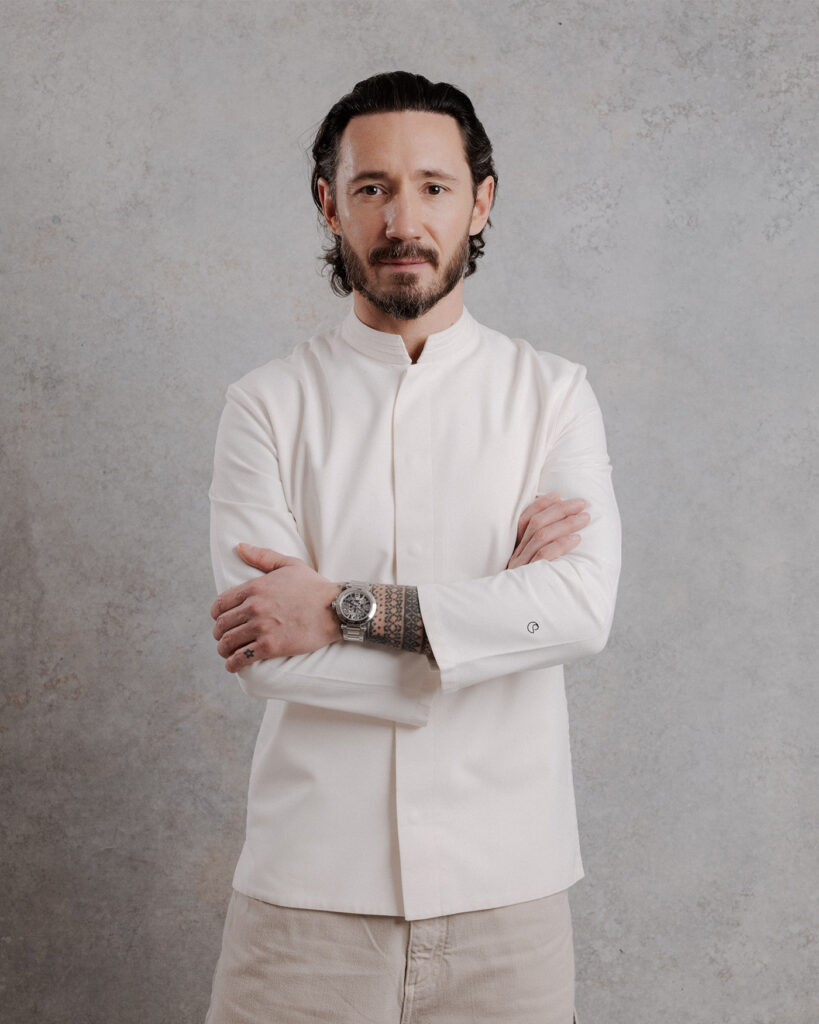
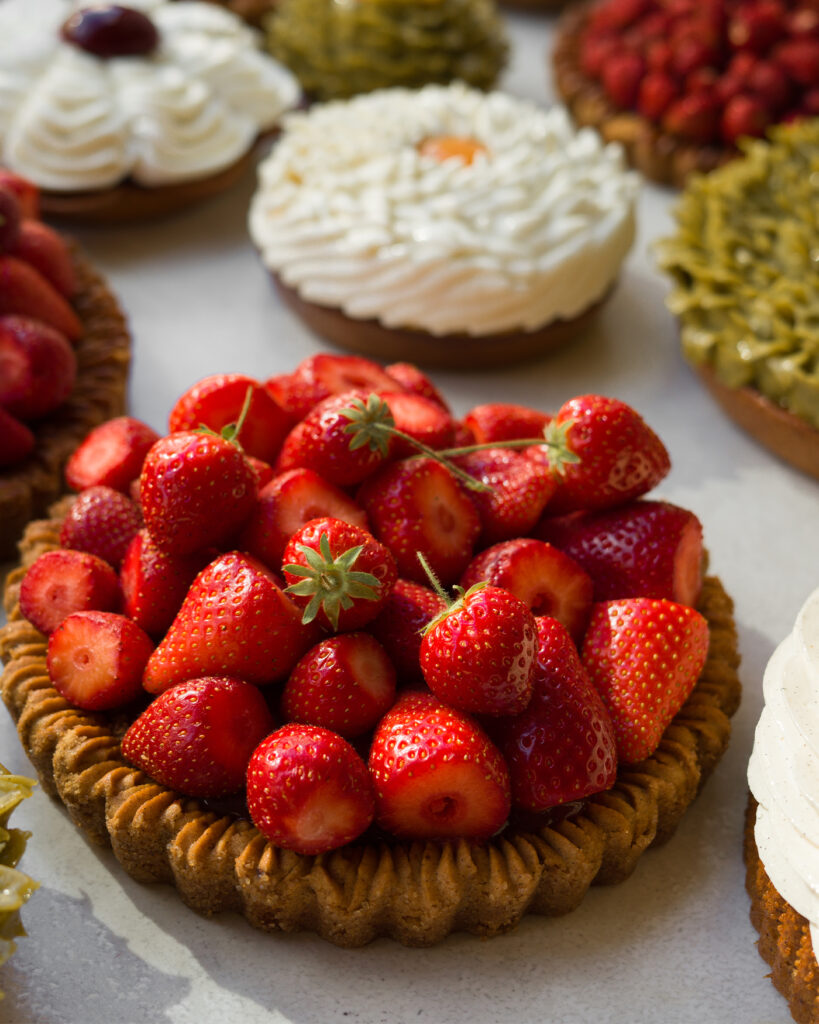
By 2013, he had risen to the rank of executive pastry chef, working under the instruction of legendary French chef Alain Ducasse in the hotel’s two Michelin starred restaurant. And, a decade later, the now 38-year-old Grolet remains the executive pastry chef at the grand Parisian hotel. He opened his first eponymous pâtisserie in 2018 in Le Meurice, followed by a second storefront — Cedric Grolet Opéra — in the 2nd arrondissement of Paris in 2019. In 2022, the chef unveiled a third location, in London, within the hallowed walls of The Berkeley hotel.
In each of these pâtisseries, Grolet sells his famous trompe l’oeil deserts. These creations often take the shape of sculpted fruits, with white chocolate shells painstakingly lacquered to mimic the textures and colours of various berries, cherries or pomes. But bite into what looks like a very real lemon and you’ll be rewarded with yuzu whipped ganache, the tang of a lemon peel-infused gel and faint undertones of mint. A similarly life-like cherry creation contains a tarragon jelly core, almond ganache, and Espelette peppers. That said, not everything is inspired by fruit. At Cedric Grolet Opéra, the chef chose to focus on viennoiserie, a style that allows him to showcase classics including Le pain perdu and Chaussons aux pommes in a new, contemporary light. Grolet’s flower series of pastries are also breathtaking, offering up edible blossoms and cakes covered in petals. His coveted Vanilla Flower cake has been a particular hit; infused with vanilla milk jam, vanilla almond biscuit, vanilla cream and vanilla ganache (Grolet openly admits his adoration of Tahitian vanilla beans). And all of these desserts strive to simulate the senses and highlight natural flavours. Because, regardless of the creative theme he’s following, the elements that underpin Grolet’s craft remain the same — a strident and unswerving focus on a single ingredient for each creation. And, despite an obvious passion for sweetness and desserts, the chef’s main motivation is flavour.
“The pastry shop was there long before us, and it will be there long after us. Nothing will change. It will be refined, and it will continue throughout time.”
Cédric Grolet
There’s also a deep respect for the provenance and practice of authentic French patisserie, one that runs parallel to his championing of a new, more popular era of baking. Grolet’s profession is both universally lauded and under the microscope in this new age of social media, and he is all too aware of that fact — but also notes the global influence and soft power this exposure has given his home country. “The pastry is French,” says Grolet, “and more and more rooted in technical terms on the choice of raw materials; the positioning, the seasons and especially the benevolence of each French pastry chef to always try to do their best. I find that incredible for our profession. It is a daily challenge.”
Grolet’s work, however, now extends beyond his culinary repertoire. Like many modern chefs, he uses social media to curate content that exhibits and expounds his meticulous creative process. But the pâtissier views these platforms as work tools rather than obligations. Society is saturated with online sharing, and for any chef worth their salt — or sugar — working in the modern world, it’s become part of the job. “As a pastry chef,” says Grolet, “what I want above all is to communicate my work via this platform and to do so intelligently. The people who follow me expect creation, creativity, new things and they all want to be surprised. And we must be present on these networks to satisfy our customers.”
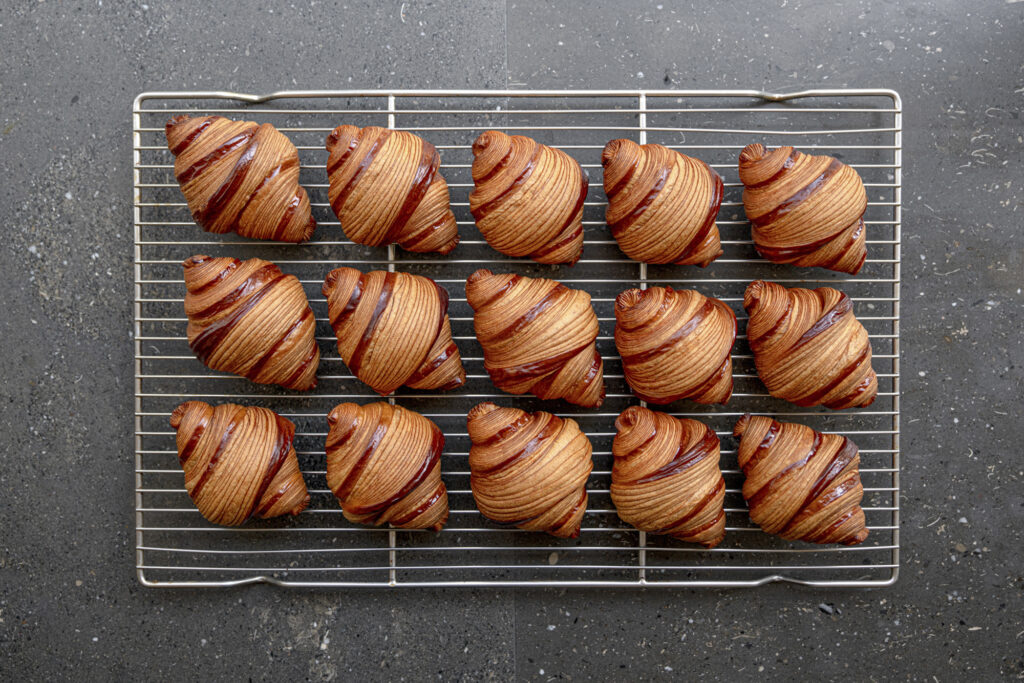
But Grolet is less enamoured of other trends that have recently swept through the gastronomic landscape. Over the last few years, he has noticed a wave of vegan restaurants opening across Paris, as well as a broader dietary shift away from processed sugars and fats. But the chef doesn’t believe these factors will impact too noticeably or negatively upon his time-honoured discipline. “Never in the life of the pastry has it had to worry about longevity,” says the chef. “It is for everyone and for all tastes. Everyone likes it. The pastry shop was there long before us, and it will be there long after us. Nothing will change. It will be refined, and it will continue throughout time.” While Grolet respects the beliefs and preferences of individuals, he remains sanguine about humanity’s love of a good dessert — and will continue to use butter in his incredible creations.
“Every time [customers] taste my pastries and share with me their emotions and delight, it is a source of pride — and the real result of all the work that has gone into this. It’s really great to do this job and make people happy. I am very lucky to do it.”
Cédric Grolet
Away from the kitchen, Grolet has other passions; from snowboarding to sneaker collecting. And, although he sticks to a rigorous exercise regime, he still indulges his sweet tooth — keeping many bonbonnières (jars of candy) around his home. He’s also published several books detailing the thinking behind his desserts, and will open yet another pâtisserie this fall — jumping continents and setting up shop in Singapore. This new store will include a customized menu for the Asian market, and Grolet has been busy experimenting with local ingredients. He aspires to, one day, make a dessert for his Singaporean customers using durian (a tropical fruit much-maligned for its intrusive, pungent smell), but he’s currently content with the banana peanut mooncake that, during the outpost’s debut, will be the star of the menu.
Such consideration for flavours and textures is what continues to drive Grolet’s craft. But there’s also another clear motivator; pleasing the people who actually eat his work. “The most important thing for me in pastry? My customers,” he says. “Every time they taste my pastries and share with me their emotions and delight, it is a source of pride — and the real result of all the work that has gone into this. It’s really great to do this job and make people happy. I am very lucky to do it.”
